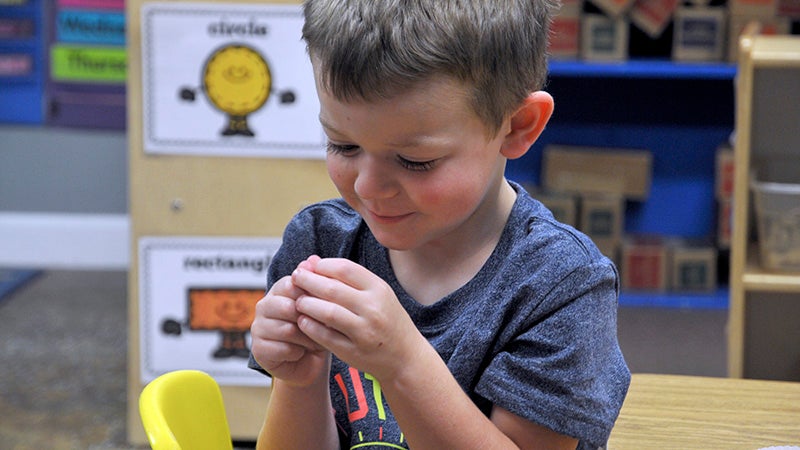Mississippi childhood well-being rank up from last
Published 7:00 am Tuesday, July 10, 2018

- 4-year-old Hayden Cousins enjoys a snack of cheesy crackers with his classmates. According to a joint report by the Annie E. Casey Foundation and Mississippi State University, Mississippi has risen from last in the nation to number 48 in childhood well-being. Photo by Leah McEwen
Mississippi has regularly ranked last in the worst categories – especially when it comes to child well-being. According to a study by the Annie E. Casey Foundation and Mississippi State University, in 2015, Mississippi was ranked as the worst state in the nation for child well-being. In economic well-being, Mississippi ranked 50, in family and community, it ranked 50, in education it ranked 48, and in health it ranked 48. These rankings led to Mississippi receiving an overall score of 50 – the lowest in the nation, the study states.
However, over the past year Mississippi has been steadily improving. In the most recently released study, Mississippi jumped by two points to the ranking of 48, bringing it up from last place. In the most recent study, in 2016, Mississippi ranked 48 in economic well-being, 50 in family and community, 44 in education and 47 in health.
The number of children living in poverty dropped from 224,000 in 2015 to 211,000, meaning 30 percent of children fall into this category. The national average is 19 percent.
Education has shown the greatest improvement after improving to the rank of 44 last year. The number of fourth-graders who are not proficient in reading dropped from 74 percent to 73 percent and the number of eighth-graders not proficient in math stayed the same at 78 percent. The national averages are 65 percent and 67 percent respectively.
However, less high school students have been graduating on time.
Linda Fraychineaud, Owner and Director of Kid’s Korner Learning Center, said their center works with the local school district to ensure young learners are prepared for kindergarten and elementary school. Fraychineaud said the center’s staff regularly attends meetings with the elementary school and other learning centers to discuss how to improve student learning.
Fraychineaud said studies show that reading and talking to children is the most important thing for their educational development. She said the center’s staff uses a combination of techniques, such as photos of local businesses and landmarks to teach children. They also put writing on everyday objects such as “door,” “sink,” “crackers” and others, to improve children’s visual recognition of words and spelling.
She said storytelling and singing songs are all beneficial to students. She said it is also important to teach children common sense, such as the benefits of sharing and treating people kindly.



